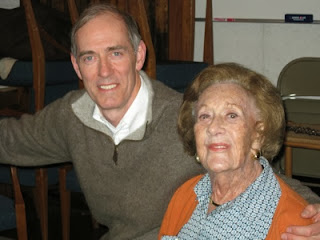Originality
Is any music really original? To answer this, first we have to decide what we mean by
“original.” Do we mean something completely different from everything that came before, or do we
mean something that is at least in some way different than what
came before? If the latter, than
how different does it have to be?
This is where copyright law comes in, and even then, originality is
sometimes a bit hard to concretely quantify.
I suppose it is not impossible to be truly original if you try hard enough, but what you will
come up with is unlikely to be considered music by most, and is very unlikely
to be commercially viable. When
you consider how much music has been written in the history of the world, true
originality is quite difficult, and even more so with every passing day as more
and more music is created. So
composers tend to use the same 12 notes and stay, at least roughly, within the
bounds of what came before.
To complicate matters even further, it is possible to create
something that came before without having heard the previous work. This actually happened to me once. I was writing some inspirational music
for a corporate show. I wrote and
re-wrote the theme several times until I arrived at what I thought would
work. My wife took one listen and
said, “That’s Carly Simon’s 'Let the River Run.'” I said, “What?”
(Believe it or not, at the time I didn’t know the song.) We played the original, and she was
completely correct. It was
identical.
Now, it’s very easy to assume I’d heard the song and was
just pulling it out of my subconscious, but I knew the process by which I’d
written it, so that theory couldn’t be correct. If you think about it, since we’re all using the same basic
12 notes, it stands to reason there would be some kind of overlap sooner or
later. This is where it’s important not to live in a bubble, and to work with
people who are deeply knowledgeable.
There’s no question that most composers take a great deal of
inspiration from what came before.
It’s doubtful we could write music at all if we didn’t. Somehow we had to learn what music was
and how to write it. The trick is
to put your own stamp on it - to merely take inspiration, not to copy it.
You would think that mathematically we would eventually
arrive at a point where all possible combinations of those 12 notes (and the
various rhythms) have been done and there is no music left to be written (at
least within our present definition of
what most of us consider “music.”)
I don’t know if or when that will ever happen, but for the moment we
press onward, trying to come up with something new – something at least in some
way significantly different from what came before. We also (at least in the field of production music) want
something that is useful to our clients.
It doesn’t do anyone much good if our unbounded originality leads to
something incomprehensible that no one has a use for. Neither is anyone served by doing the same old thing
over and over.
So this is the balancing act we perform every day. Sometimes we push the envelope more
than others, but we try not to lose sight of what we’re doing, and for whom.
As Jean-luc Goddard once said, “It’s not where you take
things from it’s where you take them to.”
Hopefully, we’re taking them to good places.
-Dave Hab



Comments
Post a Comment